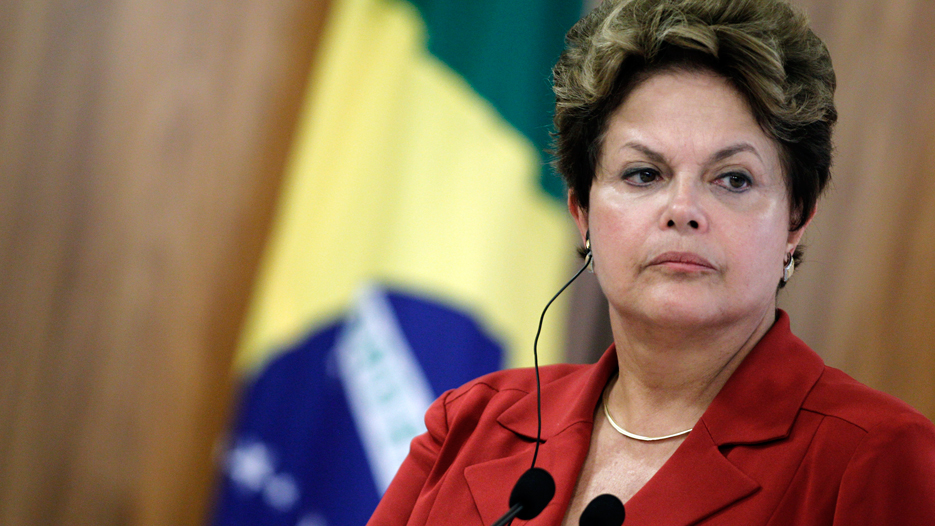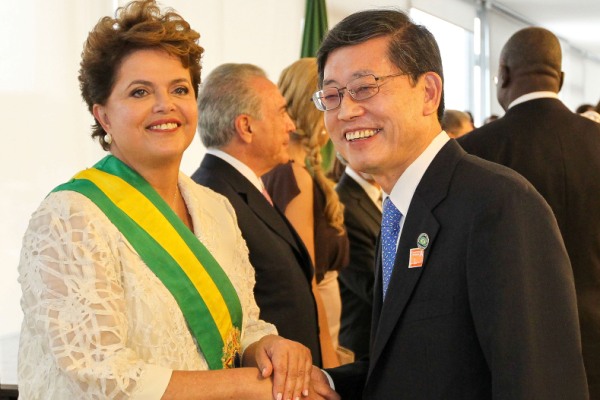Brazil’s Politics: Current Political Situation in Brazil
Brazil Top Stories
Brazil Politics: Current Political Situation in Brazil
Current President Dilma Rouseff stepped into power on the 1st of January, 2010 after Lula´s reign. Dilma is known for her focus on social inclusion and her anti-corruption policies, seeking for greater transparency and honesty in Brazilian politics.

Brazil Politics: Current Political Situation in Brazil
The fact that the Mensalao trial is actually underway however and the fact that heads have started to role is a huge step forward towards greater transparency and honesty in Brazilian politics, both essential if Brazil intends to shed its corrupt political image and become the world power it yearns to be.
Current President and Lula´s protégée Dilma Rouseff has not been affected by the Mensalão scandal (literally big monthly allowance – a scandal in which top ranking members of Lula’s cabinet were accused of being involved in a vote-buying scheme), however her rise through the ranks and the future of her government are closely linked to it. Referred to simply by her first name, Dilma stepped into power on the 1st of January, 2010 after Lula´s reign, but not his legacy, came to an end due to Brazilian electoral law which only allows a President to hold office for two consecutive four-year terms. When the Mensalao scandal erupted, Dilma wasn´t such a key figure in the Lula administration, however as many of the ministers associated with the scandal were sacked or resigned it made way for her rise, and her eventual selection by Lula as his successor.
During her time in office her anti-corruption policies, including the immediate sacking of many of her own ministers during her 2011 anti-corruption housecleaning have helped keep her popularity high. Dilma´s father was a Communist exile from Bulgaria and Dilma herself got involved in the underground resistance movement fighting against the military dictatorship. Although she has stated that she never used a gun she was apparently the mastermind behind many bank heists and other radical uprisings for which she was tortured and then jailed for 3 years from 1970.
Whilst Dilma herself, like Lula in 2005, has never been associated with any corrupt activity, this does not mean that Brazilian politics, business, and its police force and judicial system are not still infested with corruption. In the lead up to this October´s local elections in Rio de Janeiro political tactics have been aimed at winning people´s bellies rather than their hearts and minds with voters on the streets of Rio´s poorest areas claiming they´ve been offered between R$30 – R$80 (11 – 30 Euros) for their vote.

The fact that the Mensalao trial is actually underway however, (albeit some 7 years after the scandal itself erupted) and the fact that heads have started to role is a huge step forward towards greater transparency and honesty in Brazilian politics, both essential if Brazil intends to shed its corrupt political image and become the world power it yearns to be and arguably should be if the government can get a handle on corruption and move forward in terms of foreign economic policy and internal infrastructure and education. As Luiz Fernando Furlan, Minister of Development, Industry and Foreign Trade of Brazil from 2003 to 2007, stated in a recent interview : “We are a full democracy, we have 12 neighbours and no enemies and we have only one language and nationality” making Brazil an extremely stable nation. However many believe that Brazil is continuing with inward-looking, protectionist policies that see it heading in the wrong direction, down a path that has already been trodden, with a recent increase in taxes on imported cars said by many economists to signal more of the same, a door that just keeps revolving rather than one that is opening. Furlan recently spoke out against protectionist policies such as this one saying “I am against protectionism, but I am pro-reciprocation”. Successful reciprocal policies especially in terms of Brazil dealings with China – a partner in terms of exports but competition in terms of imports – will be paramount for a move away from sheer protectionism to more open trade, and whilst more FHC-style privatization is not on the cards, Brazil is definitely opening up and courting the outside world by building public-private partnerships to attract domestic and foreign investment.
However, in light of an ongoing international economic crises, the nation´s overwhelming strength is still internal and in the words of Paulo Alexandre Barbosa, ex-Secretary for Economic Development, Science and Technology for the State of Sao Paulo, Brazil is on track domestically to “enable social inclusion” and as social inclusion equates to economic inclusion, we´re talking about more than 190 million consumers whose government seeks first to protect them and what the future will be remains to be seen with a lot depending on how wide Dilma is willing to open her doors and whether she can follow in her two most recent predecessors footsteps by winning another four-year term when her current term expires at the end of 2014.